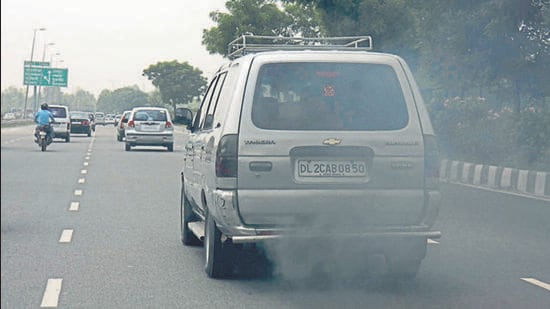The Supreme Court of India has overturned its 2017 directive requiring a valid Pollution Under Control (PUC) certificate for the renewal of third-party insurance policies. This decision was made to address the potential negative impact on road accident victims and the insurance industry.
Background
In 2017, the Supreme Court issued an order mandating that insurance companies would not renew a vehicle’s insurance policy without a valid PUC certificate. This directive aimed to control rising pollution levels in Delhi and was based on recommendations from the Environment Pollution (Prevention and Control) Authority (EPCA).
Recent Developments
On Friday, a bench led by Justice AS Oka revisited this order. The bench included Justice Augustine George Masih, and the order was influenced by an application from the General Insurance Council (GIC), an apex body of insurance firms. GIC highlighted the difficulties posed by the 2017 order, particularly the challenge it created for victims of road accidents.
Key Points from the Order
- Disastrous Consequences: The court acknowledged that strict implementation of the 2017 directive could lead to some vehicles operating without third-party insurance.
- Impact on Victims: Solicitor General Tushar Mehta, representing GIC, argued that nearly 55% of vehicles lacked insurance coverage, complicating compensation claims for accident victims.
- Need for Balance: The court recognized the necessity of balancing pollution control measures with ensuring vehicles remain insured.
- Application Support: Senior advocate Aparajita Singh, acting as amicus curiae, supported the GIC’s application to recall the 2017 order.
Court’s Decision
The Supreme Court decided to revoke the 2017 directive, removing the requirement for a PUC certificate for insurance policy renewal. This decision aimed to mitigate the adverse effects on accident victims and address the issue of uninsured vehicles.
Conclusion
The Supreme Court’s recent decision highlights the need to balance environmental regulations with practical considerations affecting public safety and welfare. The revocation of the 2017 directive underscores the importance of ensuring that all vehicles remain insured to protect accident victims adequately.
Multiple-Choice Questions (MCQs):
- What was the Supreme Court’s 2017 directive regarding vehicle insurance?
A) Vehicles must have a valid PUC certificate for insurance renewal
B) Vehicles must have a valid registration certificate for insurance renewal.
C) Vehicles must have a valid driver’s license for insurance renewal.
D) Vehicles must have a valid pollution control device for insurance renewal.
Answer: A) Vehicles must have a valid PUC certificate for insurance renewal - Who represented the General Insurance Council (GIC) in the Supreme Court?
A) Senior advocate Aparajita Singh
B) Solicitor General Tushar Mehta
C) Justice AS Oka
D) Justice Augustine George Masih
Answer: B) Solicitor General Tushar Mehta - What percentage of vehicles were reported to lack insurance coverage according to GIC?
A) 45%
B) 55%
C) 65%
D) 75%
Answer: B) 55% - What was the primary reason for the Supreme Court to revoke its 2017 directive
A) To reduce pollution levels in Delhi
B) To avoid vehicles operating without insurance
C) To simplify the insurance renewal process
D) To comply with EPCA’s recommendations
Answer: B) To avoid vehicles operating without insurance - Who supported the application moved by GIC to recall the 2017 order?
A) Justice AS Oka
B) Solicitor General Tushar Mehta
C) Senior advocate Aparajita Singh
D) Justice Augustine George Masih
Answer: C) Senior advocate Aparajita Singh
